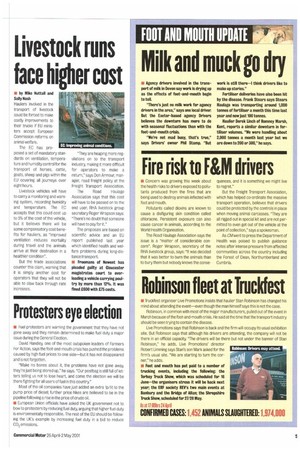Livestock runs face higher cost
Page 7

If you've noticed an error in this article please click here to report it so we can fix it.
• by Mike Nuttal and Sally Nash Hauliers involved in the transport of livestock could be forced to make costly improvements to their trucks if EU ministers accept European Commission reforms on animal welfare.
The EC has proposed a set of mandatory standards on ventilation, temperature and humidity control for the transport of horses, cattle, goats, sheep and pigs within the EU covering all journeys over eight hours.
Livestock vehicles will have to carry a monitoring and warning system, recording humidity and temperature. The EC accepts that this could cost up to 5% of the cost of the vehicle, but it believes there will be some compensatory cost benefits for hauliers, as "improved ventilation reduces mortality during travel and the animals arrive at their destination in a healthier condition".
But the trade associations counter this claim, warning that it is simply another cost for operators that they will not be able to claw back through rate increases. "They are heaping more regulations on to the transport industry, making it more difficult for operators to make a return," says Don Armour, manager, road freight policy at the Freight Transport Association.
The Road Haulage Association says that this cost will have to be passed on to the end user. RHA livestock group secretary Roger Wrapson says: "There's no doubt that someone will have to pay for it."
The proposals are based on scientific advice and an EU report published last year which identified health and welfare problems during long-distame transport.
Froomans of Newent has pleaded guilty at Gloucester magistrates court to overloading a vehicle carrying poultry by more than 12%. It was fined £600 with £75 costs.
































































































